Blog
Does Acupuncture Work?

According to Live Science, “Acupuncture is a complementary medical practice that entails stimulating certain points on the body, most often with a needle penetrating the skin, to alleviate pain or to help treat various health conditions.” While it is good to know what this medical practice is, the big question is does acupuncture work?
The short answer is yes, it works! This is evident in the fact that acupuncture has been around for well over 2,000 years. Known as Traditional Chinese Medicine, acupuncture was first known to be used in Europe around 1680, according to the Oxford University Journal. From there, it spread to Britain and the US in the 19th century. Over the course of its travels to new places, acupuncture has been used to treat many diseases. From anxiety to pain, acupuncture has found its place in modern medicine. It does work, and there is sound medical proof to back up this claim in addition to its rich history and quick growth.
To see scientific research that shows acupuncture works is to look at a few specific examples. Acupuncture is known to improve sleep, digestion, emotional well-being, and pain. According to the UC Center for Integrated Medicine, “Modern research has demonstrated acupuncture’s effects on the nervous system, endocrine and immune systems, cardiovascular system, and digestive system. By stimulating the body’s various systems, acupuncture can help to resolve pain, and improve sleep, digestive function, and sense of well-being.” This is because acupuncture helps restore the flow of energy in the body, which, when disrupted, can cause health issues. Through using needles to help stimulate the flow of this energy, or QI, acupuncture can improve health issues by unblocking blocked energy. This includes releasing chemicals to the brain that can help affect mood and sleep such as dopamine.
By unblocking energy and releasing healing chemicals, acupuncture works for many ailments, such as those listed below, which have case studies to show acupuncture works for them:
- Allergic rhinitis (including hay fever)
- Biliary colic
- Depression (including depressive neurosis and depression following stroke)
- Dysentery, acute bacillary
- Dysmenorrhea, primary
- Epigastralgia, acute (in peptic ulcer, acute and chronic gastritis, and gastrospasm)
- Facial pain (including craniomandibular disorders)
- Headache
- Hypertension, essential
- Hypotension, primary
- Induction of labor
- Knee pain
- Leukopenia
- Low back pain
- Malposition of fetus, correction
- Morning sickness
- Nausea and vomiting
- Neck pain
- Pain in dentistry (including dental pain and temporomandibular dysfunction)
- Periarthritis of shoulder
- Postoperative pain
- Renal colic
- Rheumatoid arthritis
- Sciatica
- Sprain
- Stroke
- Tennis elbow
The ailments listed below are ones for which there is more limited research available. The evidence for these working is more probable, but it is worth exploring the use of acupuncture through a licensed acupuncturist:
- Abdominal pain (in acute gastroenteritis or due to gastrointestinal spasm)
- Acne vulgaris
- Alcohol dependence and detoxification
- Bell’s palsy
- Bronchial asthma
- Cancer pain
- Cardiac neurosis
- Cholecystitis, chronic, with acute exacerbation
- Cholelithiasis
- Competition stress syndrome
- Craniocerebral injury, closed
- Diabetes mellitus, non-insulin-dependent
- Earache
- Epidemic haemorrhagic fever
- Epistaxis, simple (without generalized or local disease)
- Eye pain due to subconjunctival injection
- Female infertility
- Facial spasm
- Female urethral syndrome
- Fibromyalgia and fasciitis
- Gastrokinetic disturbance
- Gouty arthritis
- Hepatitis B virus carrier status
- Herpes zoster (human (alpha) herpes virus 3)
- Hyperlipaemia
- Hypo-ovarianism
- Insomnia
- Labor pain
- Lactation, deficiency
- Male sexual dysfunction, non-organic
- Ménière disease
- Neuralgia, post-herpetic
- Neurodermatitis
- Obesity
- Opium, cocaine, and heroin dependence
- Osteoarthritis
- Pain due to endoscopic examination
- Pain in thromboangiitis obliterans
- Polycystic ovary syndrome (Stein-Leventhal syndrome)
- Post-extubation in children
- Postoperative convalescence
- Premenstrual syndrome
- Prostatitis, chronic
- Pruritus
- Radicular and pseudoradicular pain syndrome
- Raynaud syndrome, primary
- Recurrent lower urinary-tract infection
- Reflex sympathetic dystrophy
- Retention of urine, traumatic
- Schizophrenia
- Sialism, drug-induced (excessive salivation)
- Sjögren syndrome
- Sore throat (including tonsillitis)
- Spine pain, acute
- Stiff neck
- Temporomandibular joint dysfunction
- Tietze syndrome
- Tobacco dependence
- Tourette syndrome
- Ulcerative colitis, chronic
- Urolithiasis
- Vascular dementia
- Whooping cough (pertussis)
Depending on your medical history and condition, acupuncture alone may work. However, sometimes acupuncture paired with other treatments such as medication may be a more effective option. In some cases, one acupuncture session may be enough to feel better, while in other cases, it may take many sessions over the course of a few weeks or month to feel the full effects of treatment. Consulting with a licensed acupuncturist to find the best treatment plan is always the smart thing to do before making a treatment appointment.
According to The Daily Mail, a recent study mentioned, “The new report, the largest analysis of acupuncture ever conducted, involved nearly 18,000 patients and doctors from eight universities and hospitals in the UK, the U.S. and Germany.” They found that traditional acupuncture worked better than a placebo. The study went on to state, “In fact, in conditions such as arthritis and chronic headache, acupuncture was twice as effective as the drugs and exercise recommended by most doctors, according to the analysis published in the authoritative Archives of Internal Medicine.”
So both the short and long answer is, yes acupuncture works! It works for people for people in varying situations with varying needs. It works as a short term and long term solutions. Acupuncture is a non-invasive approach that causes little to no pain. A licensed acupuncture professional places needles in certain points of the body to help with the ailment the patient is being treated for. This helps release healing chemicals and unblocks any stagnation. It is a safe and positive experience that should cause no anxiety for the patient to use as a primary or secondary treatment method.









